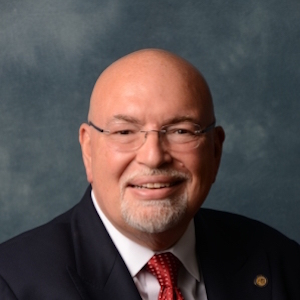One of the biggest decisions voters will make on Election Day is whether New York should hold a constitutional convention. It’s a question that the state constitution itself requires to be asked every 20 years, giving citizens the chance to open up the document to revisions and updates, if not a complete overhaul.
But it’s not so simple as whether or not the average New Yorker thinks it’s time to fix the state’s fundamental governing document. Leading the charge against a constitutional convention are labor unions and other groups who don’t want to risk changes to their cherished constitutional protections, including a right to organize and the inviolability of pension contracts.
RELATED: The pros and cons Part 1, with Mark Levine and Richard Brodsky
So with the vote approaching in a few weeks, we turned to experts to lay out the pros and cons of a state constitutional convention.
A con con wouldn’t be the people’s convention

By Arthur Cheliotes
This November, as New Yorkers across the state head to the polls and cast their vote, many won’t even think to look at the back of the ballot where Proposal 1 will ask voters whether they want a state constitutional convention. As a lifelong union member-turned-union president and son of a union member, I know the damage that a constitutional convention could do to our hard-fought labor rights.
While most would be quick to agree that Albany does not always play by the rules, facilitating dysfunction and corruption, there is some level of checks that rein in an extreme overreach of power. Because the convention rules are intentionally left wide open, since there are no rules to govern conduct or to limit the duration or cost of the process, anything is possible. The convention will face the same hurdles that undermine the current legislative process. The nearly unfettered power of the convention delegates could codify a flawed system in Albany.
It is nearly impossible to ensure the election of delegates reflects the socio-economic, racial and ethnic diversity of New York, especially after the U.S. Supreme Court’s Citizens United decision. Big money interests will fund the election of delegates through innocuous nonprofits with the mission of stripping out what is good in our constitution and insert changes in indecipherable legal terms that will say one thing and mean another.
RELATED: From the Supreme Court to a con con, labor is on the defensive
For example, “Farmers shall have the absolute right to use their land to the highest and best economic use.” Sounds fair enough – farmers can grow corn or apples, or raise dairy cows or beef cattle. But the highest and best use may be fracking, and they would have a constitutional right to that as well.
This will not be “the people’s” convention. In fact, it may be the “1 percent convention.” The last time a constitutional convention was convened, in 1967, four out of five delegates were career politicians, judges and other politically connected individuals. One was a farmer. That was decades before Citizens United, and you must understand that the delegate selection process is based on the gerrymandered state Senate districts. Are you satisfied with how that is working for us these days?
If we open our constitution to a convention, the right to unionize and bargain collectively, our right to workers’ compensation, prevailing wages and public pensions protections are subject to revision. Environmental protection of the Catskills and Adirondack preserves could be removed. The right to a public school education and care for the sick, poor and elderly could be stripped away. We cannot risk losing these important rights in our constitution in the hope that we will have a “people’s convention.”
We must first legislatively amend our constitution to take money out of politics, end the gerrymandering of electoral districts and end voter suppression. New York has amended the constitution over 100 times without a convention. We don’t need a convention to do it again.
Arthur Cheliotes is the president of Communications Workers of America Local 1180.
Opponents attack the con con process – not its substance
 By J.H. Snider
By J.H. Snider
On Nov. 7, New Yorkers will vote on whether to call a state constitutional convention. In the lead-up to this election, convention opponents have already spent millions of dollars employing the political strategy known as swift boating, which can mean attacking an opponent’s strengths rather than their weaknesses.
The term entered the lexicon after the 2004 presidential election, when President George W. Bush’s top campaign adviser, Karl Rove, used the method to attack John Kerry, the Democratic presidential nominee. Kerry had a heroic record of military service as the commander of a swift boat during the Vietnam War and the Republican nominee had dodged military service. Rather than concede this point, Rove attacked Kerry’s military service via surrogates who were swift boat veterans.
Most political campaigns focus on attacking an opponent’s weaknesses rather than their strengths. But attacking an opponent’s strengths can be more effective in low-information environments, such as in the last few days before an election when the public has the most trouble sorting through competing claims.
RELATED: New York’s “incoherent, redundant, embarrassing” state constitution
Given the public’s minimal knowledge of state constitutions in general, and constitutional conventions in particular, swift boating has proven to be a shrewd political strategy in the 14 states, including New York, that have a periodic constitutional convention referendums. Most Americans, including reporters, learn nothing in school about their state constitutions, let alone their state constitutional conventions. They’ve not read their state constitution or experienced a convention in their lifetime, and they may not even know they have a state constitution. Convention opponents exploit this knowledge deficit, most notably during the last few weeks before a convention referendum, when they launch a blizzard of negative advertising built on a swift boating strategy.
The framers of the New York Constitution designed the periodic convention referendum as a check on the state Legislature, specifically, as a mechanism to bypass the Legislature’s veto power over constitutional reform. They implemented this check by granting the public three votes over the convention process: to call a convention at periodic intervals, to elect delegates to a convention and to vote up or down any amendments a convention might propose.
RELATED: Why foes of a con con have the upper hand
Consider the following swift boat claims and the responses that I believe the framers would have if they were still alive and could defend their work.
Swift Boat Claim: A convention would open a Pandora’s box.
Framers’ Response: An unlimited convention, the claimed Pandora’s box, is a design feature, not a bug, because we designed the periodic convention referendum to provide a way to bypass the state Legislature’s veto power over constitutional amendments. If a legislature could limit a convention’s agenda, it would defeat that purpose.
Swift Boat Claim: A convention cannot do anything a legislature cannot.
Framers’ Response: We designed the New York Constitution to provide for two modes of proposing amendments: one by the state Legislature and the other by convention. The reason there are two and not one is that we designed each to serve a different function.
Swift Boat Claim: The same legislators who control the state Legislature would control a convention; so convening one would be a complete waste of taxpayer money.
Framers’ Response: Not so in our day and not so today. American states have convened 236 conventions, including nine in New York, since 1776. The reason the convention process is now part of all 50 states’ constitutions, and viewed by courts as an inalienable right of the people, is that it is independent of a legislature, which would have a blatant conflict of interest if granted exclusive power to propose limits on its own constitutional powers. In our design, we trusted the people for good reason. No convention called via periodic referendum during the 20th century has had incumbent state legislators constitute more than 10 percent of its delegates. The people understand that electing legislators as delegates would defeat the purpose of calling a convention; consequently, most incumbent legislators won’t even run.
Swift Boat Claim: As indicated by the “no” coalition’s name, New Yorkers Against Corruption, powerful special interests will have even more control over a convention than the state Legislature.
Framers’ Response: We granted the public three votes over the convention process to check, not enhance, legislative corruption. Our sound basic design is illustrated by the fact that powerful special interests – those with a demonstrated track record of successfully influencing legislatures – consistently oppose conventions because they have less control over them. For example, in 2016, those opposing the convention spent 400 times as much as supporters ($13.7 million vs. $35,800) on state candidates, parties and super PACs. In contrast, good government groups support conventions because state legislatures won’t pass popular democratic reforms, such as independent legislative redistricting.
The opposition’s swift boating strategy focuses on a convention’s process rather than the agenda. Thus, it can avoid debating unpopular policies its members want to protect, such as assault weapon protections (New York State Rifle and Pistol Association), government pensions (New York State United Teachers) and abortion (New York State Right to Life). It can even express great sympathy for the good government community’s popular reform agenda (ethics, redistricting and term limits reform) while denigrating the democratic process that would enable that agenda.
If he were alive today, Niccolò Machiavelli, the 16th century diplomat who famously explained the political logic of asymmetric information between rulers and the ruled, might admire the opposition’s skilled use of swift boating. But Machiavellian politics denigrate the democratic process, which is why public officials in democracies never publicly endorse them. The silver lining is that such politics are risky, for when they are publicly exposed, a backlash ensues.
J.H. Snider is the author of "Does the World Really Belong to the Living? The Decline of the Constitutional Convention in New York and Other U.S. States 1776-2015" and editor of The New York State Constitutional Convention Clearinghouse.


